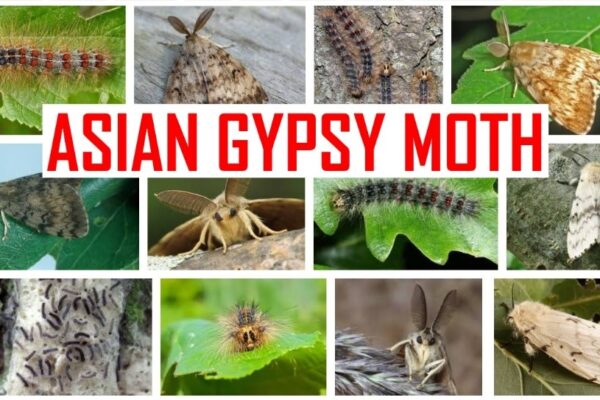The heightened vessel surveillance window for the pest formerly known as Asian Gypsy Moth (AGM) is between January and May each year. Today the Department of Agriculture, Fisheries and Forestry (DAFF) has advised it will commence the new season as from 01 January 2023 and also announces a name-change for the bug – soon to be known as Flighted Spongy Moth Complex (FSMC).
DAFF has issued Industry Advice Notice 277-2022 titled Commencement of 2023 Asian Gypsy Moth (AGM) vessel assessment and seasonal pest inspection measures.
Change of name to Flighted Spongy Moth Complex.
DAFF is currently progressing changes to the website and forms to accommodate the change in name from Asian Gypsy Moth to Flighted Spongy Moth Complex.
On 02 March 2022 the Entomological Society of America formally announced that the common name for Lymantria dispar would now be “spongy moth” replacing the name “gypsy moth” which was considered derogatory.
The common name Asian Gypsy Moth (AGM) has been used to refer to a number of species and subspecies which are characterised by female flight, which differentiates them from Lymantria dispar. The new common name “Flighted Spongy Moth Complex” (FSMC) will be used to refer to the complex of moths formerly known as AGM.
For the remainder of this article, we will refer to it simply as AGM.
What to look for.
The AGM is likely to enter Australia on vessels and cargo where they commonly settle on vessel hulls and rigging, shipping containers and vehicles. If you see this FSMC pest or any other pest that you think may have hitchhiked to Australia, contain it, where possible, and report it immediately to your agent or directly to DAFF.
Reporting requirements.
Upon submission of pre-arrival reporting by vessel masters or shipping agents, the Maritime Arrivals Reporting System (MARS) automatically emails an AGM Questionnaire to targeted vessels.
DAFF’s National Maritime Centre officers will advise, through the Biosecurity Status Document issued from MARS, if an AGM inspection or any specific biosecurity risk mitigation measures are required.
DAFF requests vessel masters and crew to remain vigilant for AGM and advise them, as soon as possible, of any suspected detections of AGM. Early detection and accurate reporting of pests prior to arrival assists in managing the risk offshore where possible and minimises the level of intervention by the department for vessel arrival.
AGM surveillance is expected to conclude on 31 May 2023.
In related news, DAFF has also issued IAN 276-2022: Industry consultation of Methyl Bromide Methodology Review postponed until next year.
As we reported last year, DAFF has been reviewing the Methyl Bromide Fumigation Methodology. They had planned to assess proposed changes to the methodology this year. However, after engaging with industry representatives DAFF realize that December and January are a busy peak period, so they have agreed to push back the consultation period to next year (2023).
As licensed Customs Brokers and International Freight Forwarders, Colless Young offers you professional advice on shipping and clearance through Customs and Quarantine for all your consignments. We provide a complete range of import and export logistics services, including warehousing, trucking and fumigation treatment. We are based in Brisbane and handle cargo by sea and air, Australia-wide.

